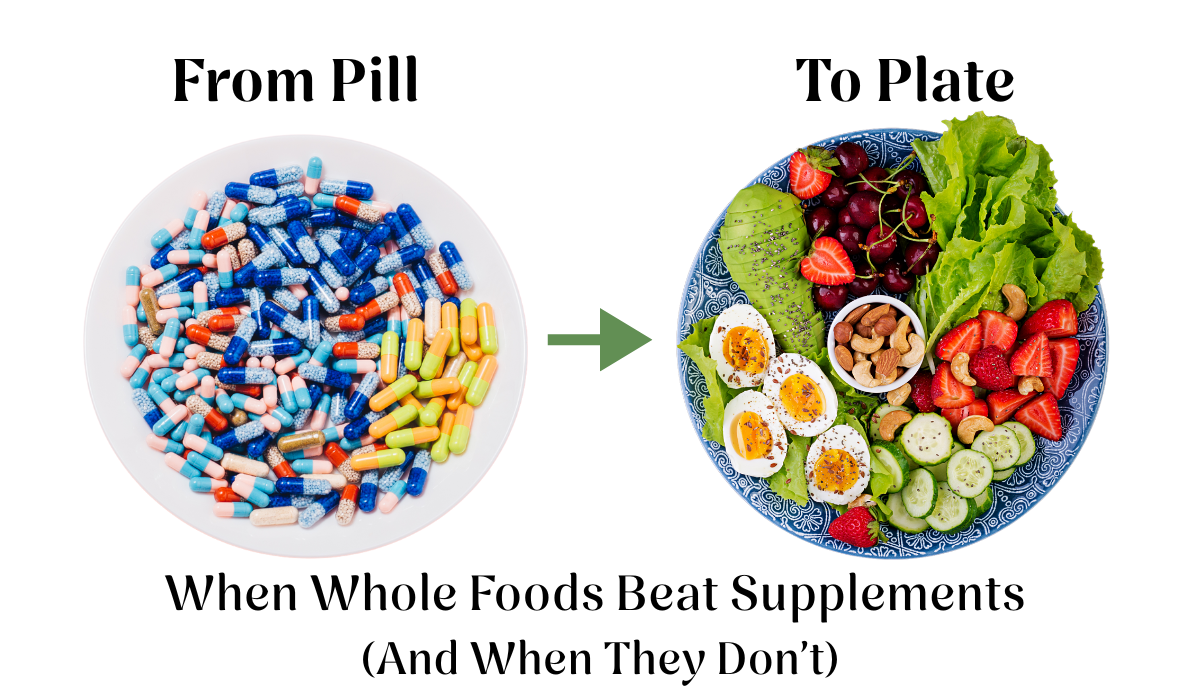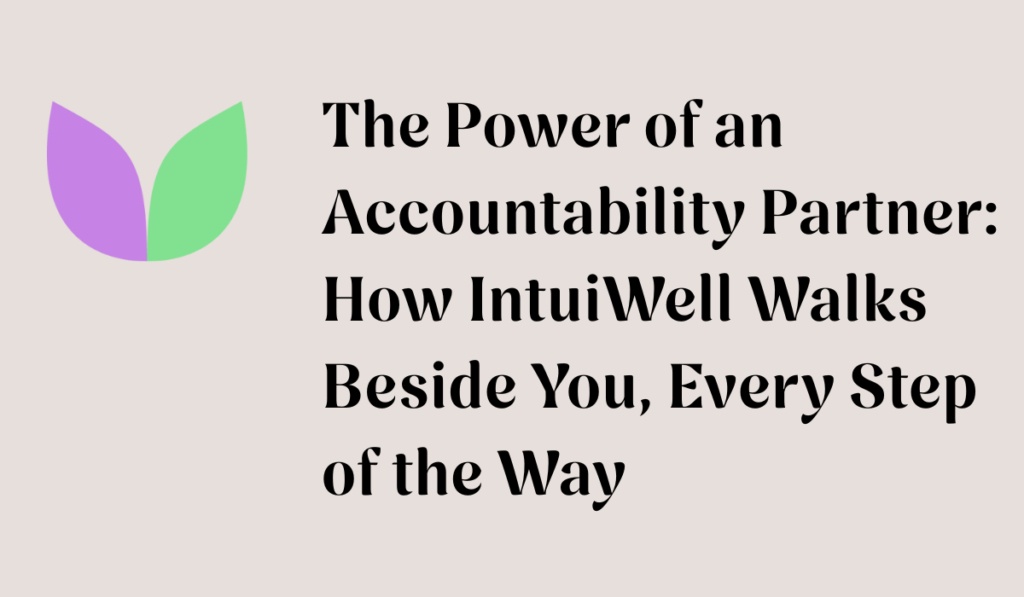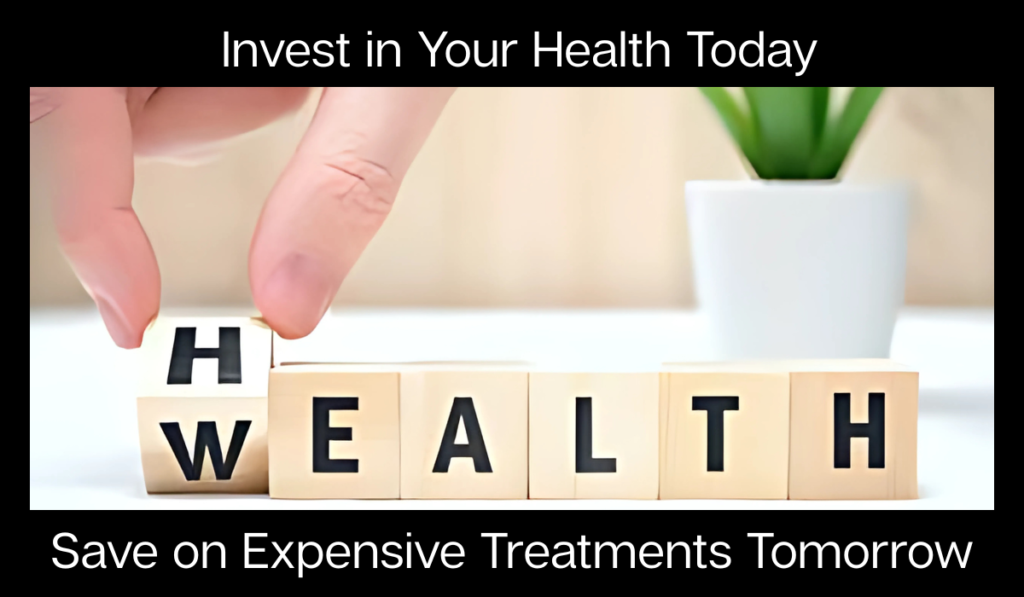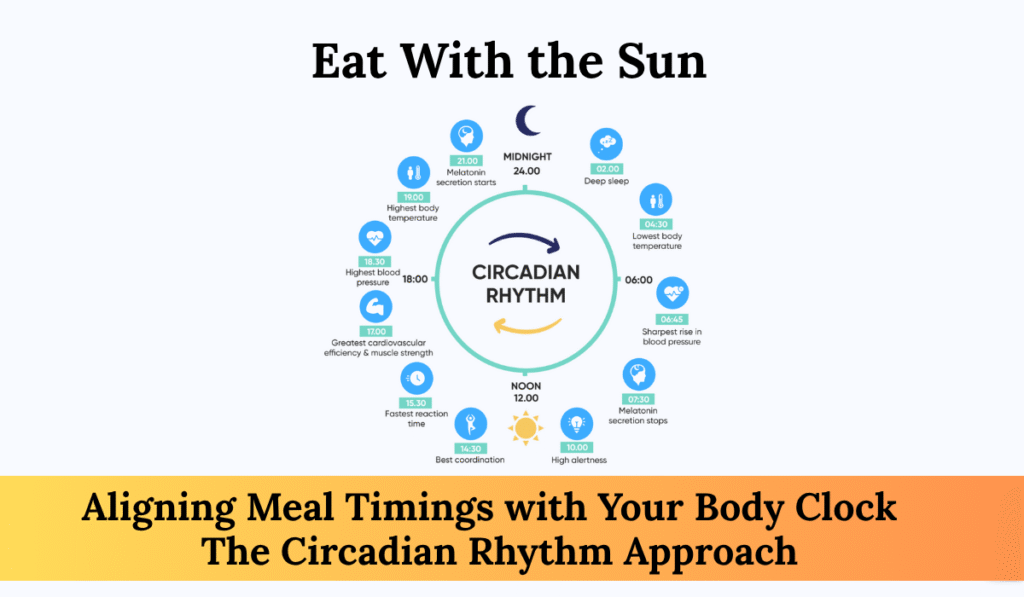In today’s fast-paced world, it’s tempting to grab a supplement bottle instead of prepping a meal. After all, swallowing a pill feels quicker and easier than chopping veggies or cooking greens. But does popping supplements give you the same benefits as eating whole foods?
The truth is more nuanced. There are times when whole foods are undeniably superior, and moments when supplements serve as a much-needed backup. Let’s break it down clearly so you can make better, more empowered choices for your health.
Why Whole Foods Usually Win
Whole foods come with a nutrient matrix—a combination of vitamins, minerals, fiber, enzymes, and phytonutrients that work together in harmony. This synergy boosts absorption, improves digestion, and supports healing in a way that isolated nutrients can’t replicate.
1. Better Absorption Through Food Synergy
- Example: Spinach contains iron, but it also has Vitamin C, folate, and fiber. This combination enhances how iron is absorbed and how your body processes it.
- Supplements give you just iron, often in a form that may cause constipation or poor absorption.
2. No Risk of Overdose or Imbalance
- Your body knows how to handle nutrients in food form.
- With supplements, high doses of single nutrients (like zinc or Vitamin A) can disrupt the balance of others or even become toxic.
3. Gut Health Benefits
- Whole foods feed your gut microbiome with fiber and resistant starches.
- Supplements often skip this entirely and may irritate the gut lining if overused.
But… When Do Supplements Make Sense?
There are situations where supplements are not just helpful, but necessary.
1. Clinically Diagnosed Deficiencies
- If blood tests confirm you’re deficient in Vitamin D, B12, or iron, supplements offer a therapeutic dose that food alone might not deliver fast enough.
- These are best taken under medical guidance with regular monitoring.
2. Digestive or Absorption Issues
- People with IBS, Crohn’s, low stomach acid, or post-surgery conditions may struggle to absorb nutrients from food.
- Supplements provide support while gut healing protocols are in place.
3. Lifestyle Gaps or Restrictions
- Vegans may need B12, Omega-3 (DHA), and Vitamin D.
- Pregnant women often need folate and iron beyond what food provides.
- Busy professionals or travelers may not get enough variety and benefit from a multivitamin backup.
4. High-demand Phases
- During athletic training, post-illness recovery, or intense stress, your nutrient needs go up.
- Supplements may bridge the gap temporarily until diet catches up.
How to Know When You Need a Pill and When You Don’t
Here’s a simple rule of thumb:
| Scenario | Go for Food | Consider Supplements |
| Mild fatigue, occasional hair fall | Nutrient-dense meals, better food pairing | Only if persistent after diet changes |
| Vegetarian or vegan diet | Plant-based diversity, fortified foods | B12, D3, Omega-3 as a backup |
| Changing seasons / low immunity | Citrus fruits, fermented foods, zinc-rich meals | Temporary C, D3, or zinc in short bursts |
| Diagnosed deficiency (lab-confirmed) | Continue whole foods alongside | Essential to correct with targeted dose |
| Pregnancy / breastfeeding | Nutrient-rich meals, seasonal vegetables | Folate, iron, and D3 based on OB-GYN advice |
| Elderly or poor digestion | Easily digestible, cooked meals | B12, D3, calcium based on needs |
The Smart Middle Ground: Food-First, Supplements-Second
You don’t have to choose one over the other. The best approach is food-first, and supplements only when needed, not forever.
Practical Tips:
- Build a colorful plate: Include greens, roots, fruits, legumes, seeds, and whole grains.
- Use intelligent food pairing: Iron with Vitamin C, turmeric with pepper, fats with fat-soluble vitamins.
- Keep a food journal for a week to spot nutrient gaps before reaching for a pill.
- Choose high-quality supplements with clean ingredients and third-party testing if you do need them.
Final Thoughts
Supplements can be life-saving, but they’re not a substitute for the intelligence of nature. Real food is alive—it offers not just nutrients, but energy, flavor, satisfaction, and healing.
Before buying another bottle, ask yourself:
Can I get this from my plate first?
If the answer is yes—even most of the time—you’re already on the path to sustainable, real health.



